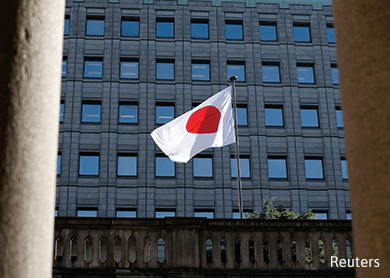
TOKYO (Sept 30): Japan's factory output unexpectedly fell for the second straight month in August, fuelling worries that a prolonged slump could quash an unsteady economic recovery and raising expectations of fresh stimulus from the Bank of Japan to reignite growth.
Retail sales rose for a fifth straight month in the year to August but the pace of annual gains slowed markedly, underscoring fragility in consumer spending.
Factory output fell 0.5 percent month-on-month, trade ministry data showed on Wednesday, well short of a 1.0 percent increase expected by economists in a Reuters poll.
The weak indicators suggest the world's third largest economy continues to struggle for traction after it shrank an annualised 1.2 percent in April-June, keeping policymakers under pressure to offer fresh stimulus to stoke growth.
Analysts forecast a modest bounce in growth in the current quarter, but some say the risk of a recession is rising as China's economy continues to slow.
"Exports were weak in August and that weighed on industrial output and shipments. Factory output looks likely to fall for a second straight quarter in July-September," a trade ministry official told a media briefing.
Manufacturers surveyed by the trade ministry expect output to rise just 0.1 percent in September and grow 4.4 percent in October.
The ministry cut its assessment of industrial output, saying it is weakening.
Separate data by the ministry showed retail sales rose 0.8 percent in August from a year earlier, versus a 1.1 percent increase expected by economists. That marked a fifth straight month of gains but slowed from a 1.8 percent growth in July.
The soft data comes at a delicate time for the central bank.
The Bank of Japan will scrutinise a batch of data - including its key tankan survey due on Thursday and household spending out Friday - at its policy review next week.
Speculation persists that the BOJ could ease policy further as early as this month in order to achieve its inflation target.
The central bank argues that core consumer inflation will accelerate to its 2 percent goal by September 2016.
Few, if any, investors expect the target to be reached as a renewed drop in oil costs saw prices fall for the first time since the BOJ deployed its massive asset purchases.